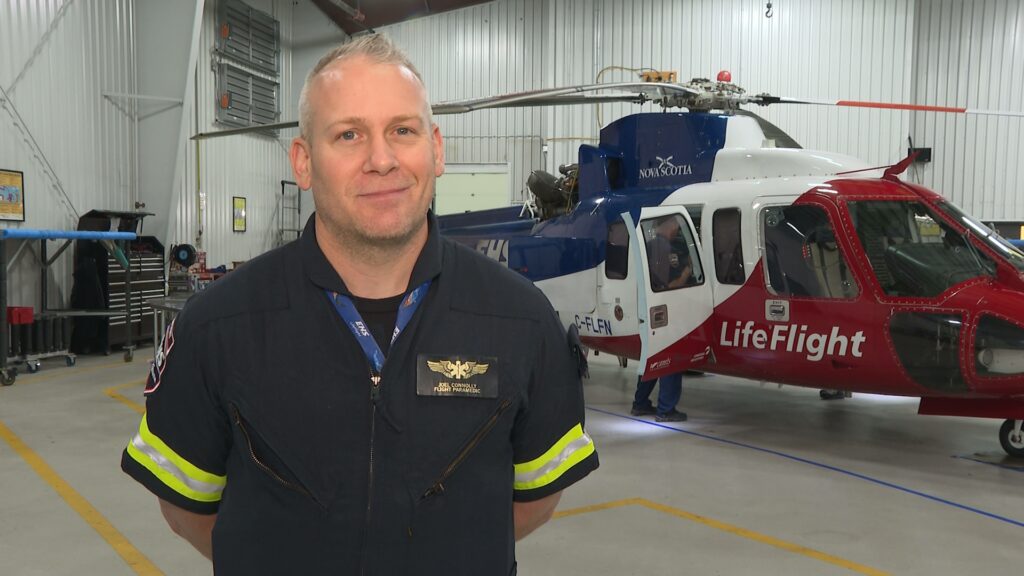Imagine the stress of working in a hospital’s emergency department — now add being thousands of feet in the air.
That’s the everyday job of an EHS LifeFlight critical care nurse.
Samantha Kennedy earned her wings from years working in the emergency room, but now she divides her time between the Halifax Infirmary and the airport.
And when a call comes in, she says the LifeFlight team can be in the sky within 10 minutes.

Get weekly health news
Receive the latest medical news and health information delivered to you every Sunday.
“On the helicopter we’re able to sit on both sides of our patients, so we can both work and have access to both sides,” Kennedy says.
“So, it feels a little more comfortable and a little bit easier to do procedures if we needed to.”
Those procedures can range from providing medical ventilation to chest tube insertion.
But flight nurses aren’t expected to do these medical interventions solo — LifeFlight pairs up a nurse with a paramedic to play to each’s strengths.
Joel Connolly is an experienced paramedic with more than 10 years’ service on the ground.
“Logistically, it can be very challenging,” he says. “It is vastly different than an ambulance. You can pull an ambulance over and make changes; you can’t pull a helicopter, an airplane over. So there’s a lot of planning ahead.”
The planning is made possible through training simulators, like the one at the EHS LifeFlight hangar.
Watch the video above for the full story.
© 2025 Global News, a division of Corus Entertainment Inc.






